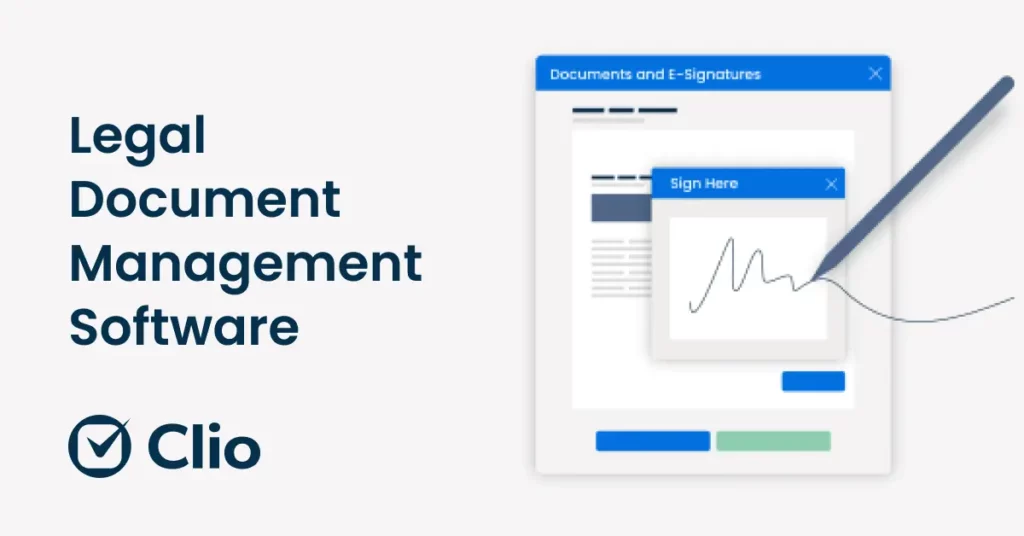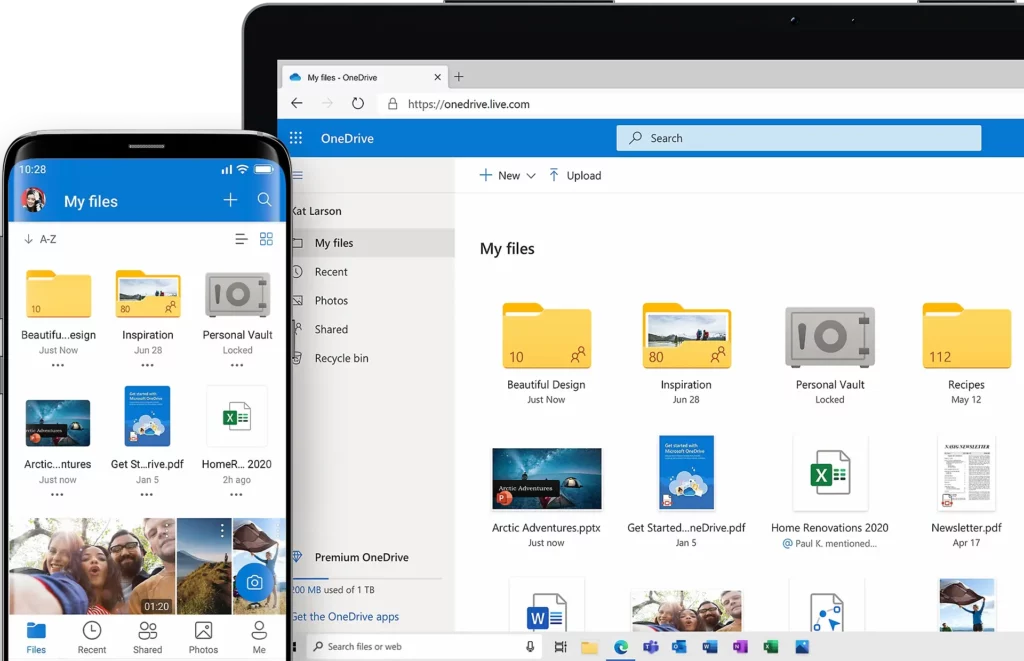When it comes to drafting legal documents, accuracy and reducing risk are the two biggest concerns for attorneys.
So when looking for legal document management software, these two questions should be top of mind:
- How does this tool help to improve the accuracy of the legal document?
- How does this tool reduce the risk of mistakes or unauthorized edits?
In this article, we’ll look at what legal document collaboration means in 2023 and explore three best practices all law firms should follow. Then we’ll talk about the best legal document management software for various use cases – from storage and sharing to document approval.
Supercharge your legal document reviews
Share content, get feedback, and manage approvals with Filestage.
What is legal document collaboration?
Legal document collaboration is the process of working with one or more parties to create, update, or finalize a legal document.
In some cases, this could mean co-authoring legal documents in real time using a live Word or Google Docs file. In others, it’s about going back and forth until a document satisfies everyone involved.
Here are a few examples:
- Two businesses collaborating on the details of a shared a business agreement
- A solicitor and ghostwriter collaborating on a company’s privacy policy
- A company and freelancer collaborating on an employment contract
Let’s look at three best practices law firms can follow when managing legal documents.

Three best practices for legal document management and collaboration
When it comes to legal documents, the devil is in the details.
One small wording change can be the difference between being liability free and getting hit with a big fat lawsuit. So you need to make sure your legal document management systems are water tight.
There are plenty of collaboration tools out there to help you out. But before we get into the different use cases and benefits, let’s look at three best practices you or your law firm should follow:
- Be strict with access and editing rights
- Draw a clear line between versions
- Keep an audit trail of key decisions
I’ll dive into each of these in more detail below.
1. Be strict with access and editing rights
There are a couple of questions at play here: who can see your document and who can edit it?
When sharing a Word or Google Docs file, there are usually four different types of access:
- Restricted – the user cannot open the document
- Viewer – the user can open the document and read it
- Commenter – the user can add comments or suggest changes to the document
- Editor – the user can edit the document directly
Depending on the sensitivity of your document, you’ll probably want to set your document to restricted by default. That way, only the people you invite will be able to see it.
After that, you can choose between making them viewers, commenters, or editors. Personally, I would avoid giving anyone else editing rights to ensure a secure document collaboration process. I’ll explain why with best practice number two!
💡 Top tip: When you create a legal document in an existing folder on Google Drive or OneDrive, it may automatically give people access based on the folder’s sharing rights. So always check the permissions of the document you’re working on before you add any sensitive information.
2. Draw a clear line between versions
Microsoft Word, Google Docs, and their brothers and sisters have changed the game when it comes to document management and collaboration.
We’ve got used to a world where we can collaborate on documents simultaneously over the cloud. But when it comes to legal document management, this real-time approach to collaboration poses major risks.
Instead of ever-evolving documents that can be updated by anyone at any time, legal professionals should draw a clear line between one version and the next. The best way to do this is by exporting your document as a PDF before sharing it for feedback or approval.
💡 Top tip: With Filestage’s document comparison feature and document version control, you can instantly highlight the differences between two versions of a PDF. This will save your law firm a huge amount of time rereading documents while making sure that no unauthorized changes slip through the net.
3. Keep an audit trail of key decisions
If there’s one thing legal professionals want to avoid, it’s being sued. This is especially true for small law firms and medium sized legal practices where there is very little money to burn.
One of the best ways to protect your law firm is by keeping an audit trail of how and when decisions were made – and any discussions that happened along the way.
And by making it clear to all parties that your document review process is recorded and easy to audit, you’ll encourage greater attention to detail and accountability.
💡 Top tip: With Filestage, you can export file reports that show every version, comment thread, and approval or change request – including timestamps. You can then save these on your system in case you ever need to revisit them in the future.
Best legal document management software
Let’s look at the top legal document management software across three key use cases:
- Document drafting and management
- Document review and approval
- Document storage
Let’s dive in.
1. Clio – best for legal document drafting and management

Clio is a legal document management software with solutions ranging from drafting, to billing, to e-signatures. This makes it the most comprehensive tool for legal practice management in this list – but it’s also the most expensive.
It’s top features include:
- Intelligent document automation – Save time by converting Word files into online templates, making it easy to update pronouns or add and remove multiple clauses at once.
- Automated court forms – Access up-to-date court forms that you can auto-fill in an instant, with remote access to make sure everyone is using the latest versions.
- Template services – Get support from legal experts to create your templates, helping you stay focused on billable work.
Pricing
Clio offers four pricing plans with a free seven day trial:
- EasyStart, $39/user per month – Centralize documents and work more efficiently with email and e-signature integrations.
- Essentials, $69/user per month – Collaborate with clients and complete documents faster by auto-filling case data.
- Advanced – $99/user per month – Never misplace a document with full document search and help more clients with unlimited e-signatures.
- Complete – $129/user per month – Take advantage of automations and online intake forms.
What users are saying about it
“On a weekly basis, I’m probably saving 4-5 hours of attorney time… I use Clio and Lawyaw together all day everyday.” – Christy Granieri, Freeburg & Granieri, APC
2. Filestage – best for legal document review and approval
Filestage is a legal document management system that helps to streamline the sharing, review, and approval of legal documents. It’s ideal if you’re looking for a solution that functions as process documentation software.
It also doubles as a valuable file comparison tool for legal teams, helping to identify changes in contracts and other important documents.
Here are a few of its top features:
- Project workflows – Set up clear and repeatable workflows so all your relevant documents can go through the same review and approval steps.
- Collaborative comments – Add comments and markups to PDFs and discuss changes in context.
- Version control and comparison – Revisit previous versions and comments in a couple of clicks and compare versions side by side to automatically highlight changes.
- Verified approvals – Increase accountability by making reviewers verify their identity when approving a document.
Pricing
Filestage offers four pricing plans, all of which include unlimited users:
- Free – Get access to two projects with a two-step review process and share unlimited files and versions with unlimited reviewers.
- Basic, $49/month – Create and manage up to 10 active projects with 250 GB secure storage.
- Professional, $249/month – Create and manage up to 25 active projects with a three-step review process and access advanced tools like version comparison, templates, and automations.
- Enterprise, contact sales for pricing – Create and manage unlimited projects with unlimited reviewer groups, templates, and automations. And access advanced security features and custom team roles.
What users are saying about it
“Filestage offers great documentation of the feedback and approval steps, e.g. for audits and other content-related quality checks.” – Lisa Weißer, RaboDirect
3. OneDrive – best for legal document storage

The other tools in this list both offer document sharing and storage capabilities. But if you’re looking for a best-in-class solution for storing your case files, OneDrive has you covered.
It’s top features include:
- Smart syncing – Easily upload, share, and access files across any of your devices.
- Folders – Create repeatable folder structures to keep all your relevant documents organized and easy to find.
- Collaboration – Share access to multiple files at once by granting access to specific folders.
Pricing
OneDrive offers three paid plans for business users:
- OneDrive for Business, $5/user per month – 1 TB of cloud storage.
- Microsoft 365 Business Basic, $6/user per month – Get access to popular tools like Word, Excel, and PowerPoint on your phone or in your browser.
- Microsoft 365 Business Standard, $12.50/user per month – Access Microsoft 365 from your desktop.
What users are saying about it
“I like that I can access our entire file server from anywhere including from my phone on the go. Therefore if I need to send a document to someone, I can do it from anywhere at any time and even directly from the app.” Kellie W, Office Administrator.
Final thoughts
When collaborating on legal documents, you need tools that maximize accuracy and minimize the risk of mistakes.
I hope the best practices and legal collaboration software discussed in this article have given you plenty of options to optimize your processes.
If you’d like to see how Filestage can help with your legal document reviews, start a free trial →








